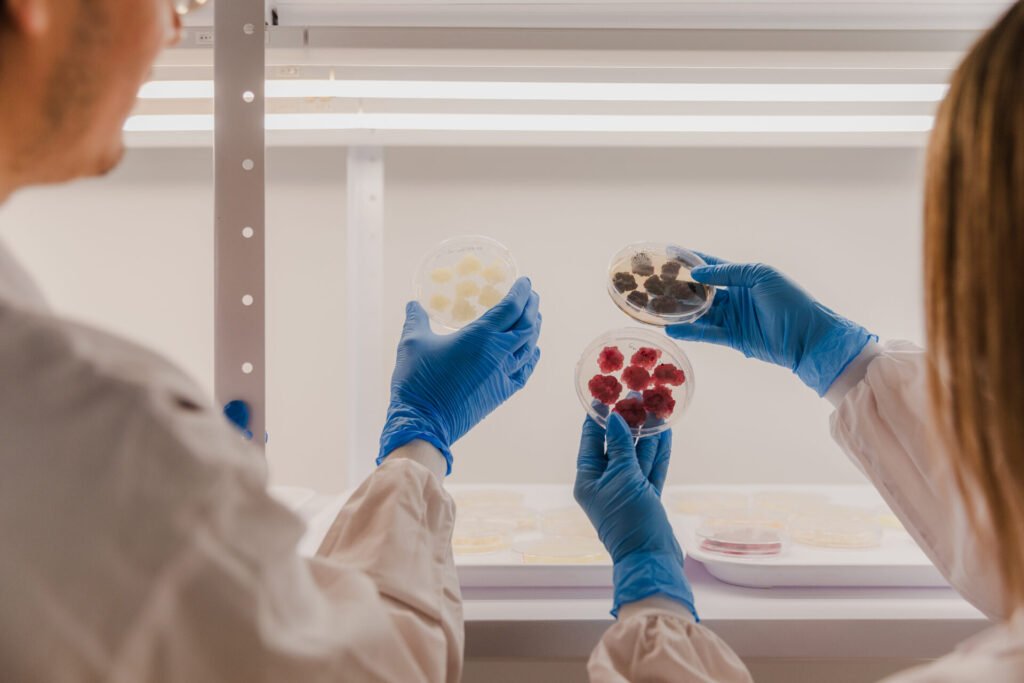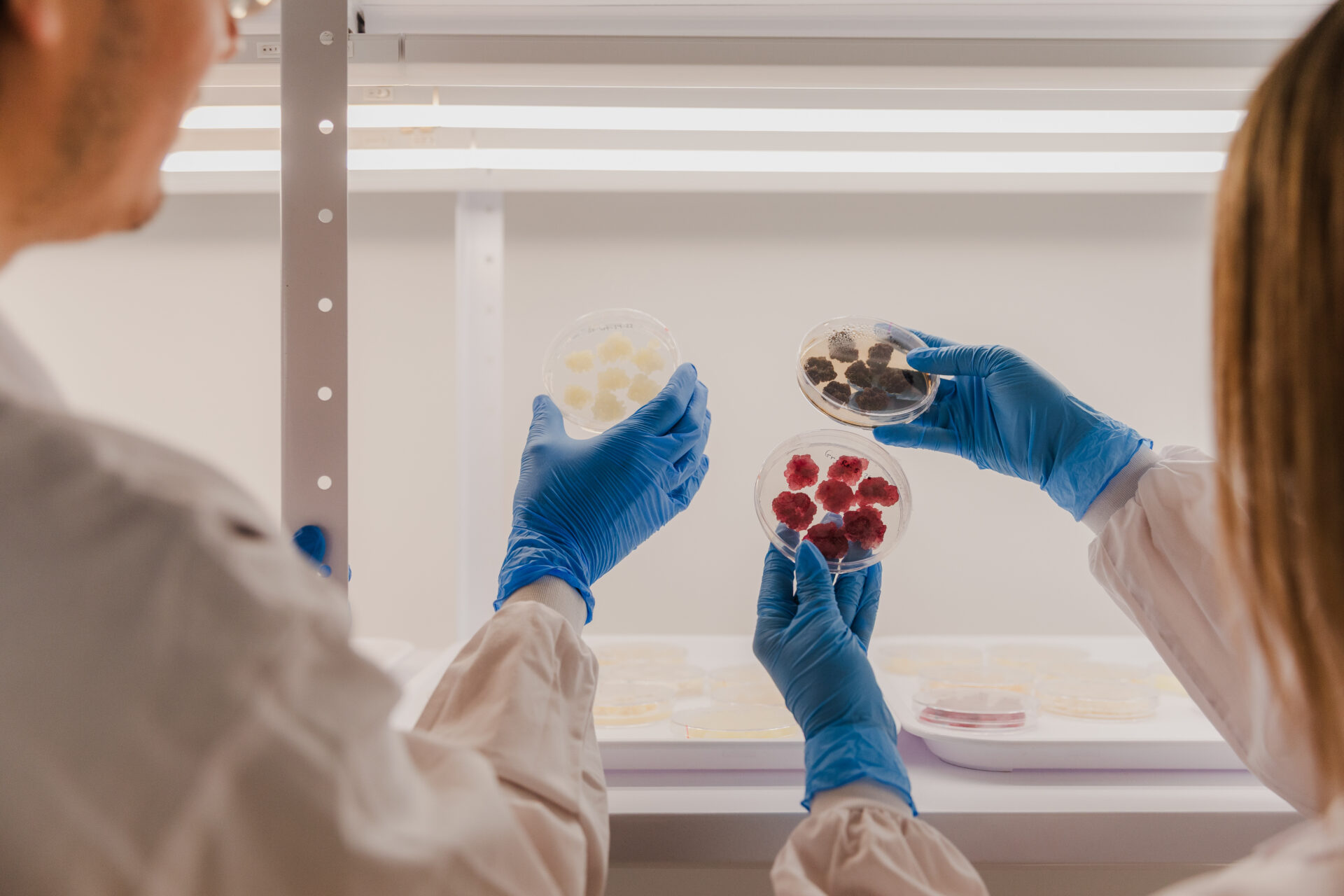
Natural preservatives from mixed tocopherols to rosemary extracts are gaining traction as food manufacturers seek to clean up labels. But could a new generation of products produced by plant cell culture unlock new mechanisms of action?
Israeli foodtech startup Novella is one of a flurry of startups developing high-value food or personal care ingredients via plant cell culture. Rather than using sunlight, water, and soil to nurture fully-grown plants, these companies grow plant cells in bioreactors in conditions optimized for the rapid, consistent, and controlled production of high-value botanicals as agricultural supply chains are increasingly threatened.
While several of these startups are focusing on coffee and cocoa however, Novella is focusing on antimicrobials and antioxidants, and has just struck a strategic partnership with Metaphor Foods, the innovation arm of global ingredients and private label food giant Hela APAC, designed to secure ingredient availability, establish manufacturing readiness, and ensure consistent quality at scale.
“Valued at $10 million over seven years based on meat industry projections alone, the agreement holds wider potential across APAC’s food and pet sector,” says Novella, which will produce products for Metaphor Foods’ Hela Natvance range of natural food-protection solutions, with a commercial launch planned for early 2026.
While the initial focus is on meat and poultry preservation, the strategic potential of the partnership “extends across dozens of revenue-generating categories, including seafood, dairy, baked goods, alternative protein products, and pet food,” said Metaphor Foods CEO Geoff Gordon.
Multiple trials with meat products have been conducted at the Hela-Schwarz application labs with “impressive results,” claimed Gordon. “Novella successfully replaced natural antioxidants currently in use, reduced the overall cost, and extended shelf life by 30%. Compared to synthetic optionsꟷwhich face growing consumer resistanceꟷNovella’s products not only offer clean-label benefits but also promote minimal footprint.”

Alkaloids, terpenes, and polyphenols
But why produce preservatives from plant cells when you can extract them from fully-grown plants?
According to Novella, natural preservatives “come with notable limitations for some formulations including off-flavors, inconsistent efficacy, low compatibility, cost barriers, and supply chain limitations.”
The global supply chain for some of these ingredients is also becoming increasingly unstable, with fluctuations in crop quality, climate-related disruptions, limited harvesting windows, and recurring raw material shortages, leading to unpredictable pricing and supplies, said the firm. Novella offers a consistent and scalable natural alternative.
“We are producing known bioactives—mainly alkaloids, terpenes, and polyphenols—naturally found in plants,” Novella cofounder Itay Dana told AgFunderNews.
“The innovation lies in our targeted composition and delivery system: instead of isolated extracts, we offer intact, soluble plant cells that protect the bioactives, improve stability (e.g. heat resistance), and enable a new mechanism of action. While the compounds are known, this format unlocks new functional benefits and enhanced efficacy.”
He added: “We work with plant cells in their callus stage—an undifferentiated, stem-cell-like state. This stage allows us to select cells based on their bioactive profile, structural properties, and growth performance in bioreactors. The result is a cell line optimized for both functionality and efficient, scalable production.”
Regulatory pathway
Asked about regulatory pathways, he said: “In many countries, plant cells—especially in their whole, unextracted form—are not considered novel. However, in regions such as the EU, all plant cell products fall under the Novel Food category.
“We plan to launch first in the US under GRAS [the Generally Recognized as Safe process], followed by Australia and APAC markets. Europe will follow due to its longer regulatory process. Labelling varies by region: some markets will list the ingredient as ‘Whole plant cell culture of [plant name],’ while others may use the plant name alone.”
While some players in plant cell culture are experimenting with multi-use plastic bioreactors, Novella is using commercially available stainless-steel bioreactors with “proven reliability and scalability,” said Dana. “We work with contract manufacturers based in Italy, giving us global production flexibility without the need for in-house facilities.”
Investor sentiment
Novella was initially funded by its three founding partners—Kobi Avidan, Shimrit Bar- El, and Itay Dana—and has since attracted VC firms including Plug and Play and Zora Ventures as well as private investors, he said.
“There is strong investor interest in plant cell culture technologies, though at times we see a tendency to focus on commodity product categories, where the fit between technology and commercial value is less clear. At Novella, we represent the kind of company that has found the right balance between advanced technological capabilities and commercial value proposition.”
What’s next?
Beyond natural preservatives, Novella is also targeting the dietary supplement sector, “where we plan to launch products that offer a completely new approach to bioactive delivery and efficacy,” said Dana.
“We’re focusing on core compound groups—alkaloids, terpenes, and polyphenols—delivered in soluble powder formats such as sachets, capsules, and other powder-based applications.
“Our first product launch is planned for late 2025, with commercial-scale sales beginning in 2026, pending regulatory approvals.”
Further reading:
🎥 Cocoa, minus the beans: California Cultured plans launch in 2026
🎥Plant cell culture startup Green Bioactives preps for first commercial launches in 2026
Food Brewer nets funding from Lindt and Sparkalis for cocoa grown via plant cell culture
ReaGenics deploys plant cell culture to create potato biomass with 31% protein content
The post Could plant cell culture pave the way for the next generation of antioxidants and antimicrobials? appeared first on AgFunderNews.




